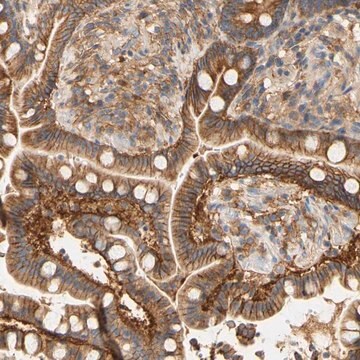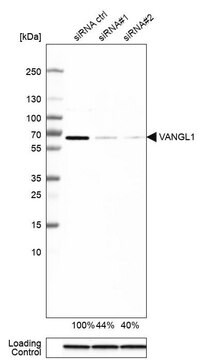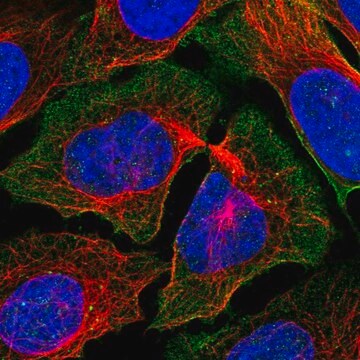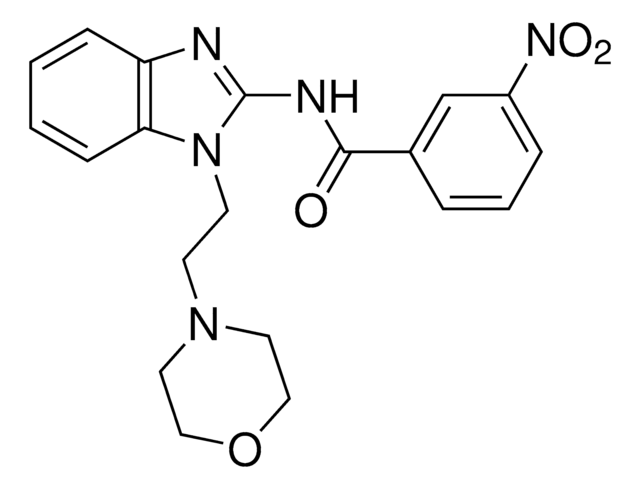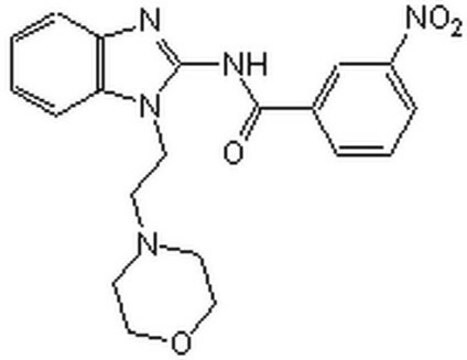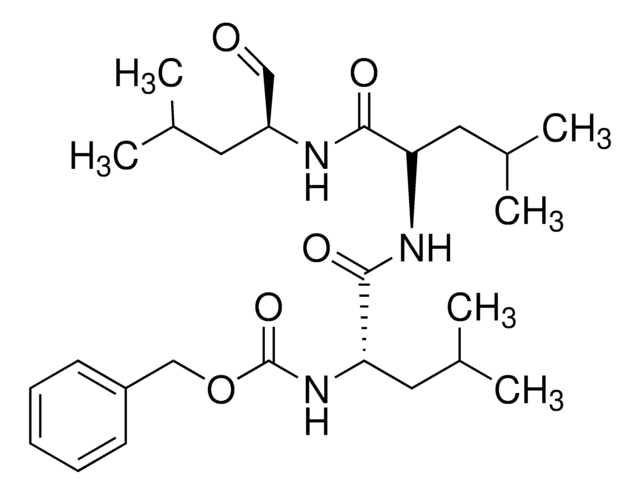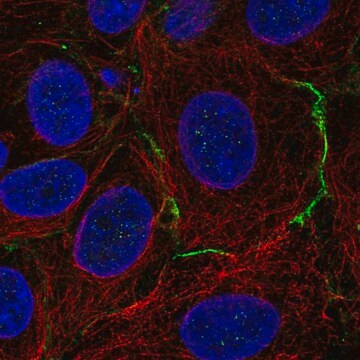HPA026817
Anti-PCDH17 antibody produced in rabbit
Prestige Antibodies® Powered by Atlas Antibodies, affinity isolated antibody, buffered aqueous glycerol solution
Synonim(y):
Anti-Protocadherin-17, Anti-Protocadherin-68
About This Item
Polecane produkty
pochodzenie biologiczne
rabbit
Poziom jakości
białko sprzężone
unconjugated
forma przeciwciała
affinity isolated antibody
rodzaj przeciwciała
primary antibodies
klon
polyclonal
linia produktu
Prestige Antibodies® Powered by Atlas Antibodies
Formularz
buffered aqueous glycerol solution
reaktywność gatunkowa
human
metody
immunofluorescence: 0.25-2 μg/mL
immunohistochemistry: 1:20-1:50
sekwencja immunogenna
VNDNAPVIVLPTLQNDTAELQVPRNAGLGYLVSTVRALDSDFGESGRLTYEIVDGNDDHLFEIDPSSGEIRTLHPFWEDVTPVVELVVKVTDHGKPTLSAVAKLIIRSVSGSLPEGVPRVNGEQHHWD
numer dostępu UniProt
Warunki transportu
wet ice
temp. przechowywania
−20°C
docelowa modyfikacja potranslacyjna
unmodified
informacje o genach
human ... PCDH17(27253)
Opis ogólny
Immunogen
Zastosowanie
Działania biochem./fizjol.
Cechy i korzyści
Every Prestige Antibody is tested in the following ways:
- IHC tissue array of 44 normal human tissues and 20 of the most common cancer type tissues.
- Protein array of 364 human recombinant protein fragments.
Powiązanie
Postać fizyczna
Informacje prawne
Oświadczenie o zrzeczeniu się odpowiedzialności
Nie możesz znaleźć właściwego produktu?
Wypróbuj nasz Narzędzie selektora produktów.
Kod klasy składowania
10 - Combustible liquids
Klasa zagrożenia wodnego (WGK)
WGK 1
Temperatura zapłonu (°F)
Not applicable
Temperatura zapłonu (°C)
Not applicable
Wybierz jedną z najnowszych wersji:
Certyfikaty analizy (CoA)
Nie widzisz odpowiedniej wersji?
Jeśli potrzebujesz konkretnej wersji, możesz wyszukać konkretny certyfikat według numeru partii lub serii.
Masz już ten produkt?
Dokumenty związane z niedawno zakupionymi produktami zostały zamieszczone w Bibliotece dokumentów.
Nasz zespół naukowców ma doświadczenie we wszystkich obszarach badań, w tym w naukach przyrodniczych, materiałoznawstwie, syntezie chemicznej, chromatografii, analityce i wielu innych dziedzinach.
Skontaktuj się z zespołem ds. pomocy technicznej